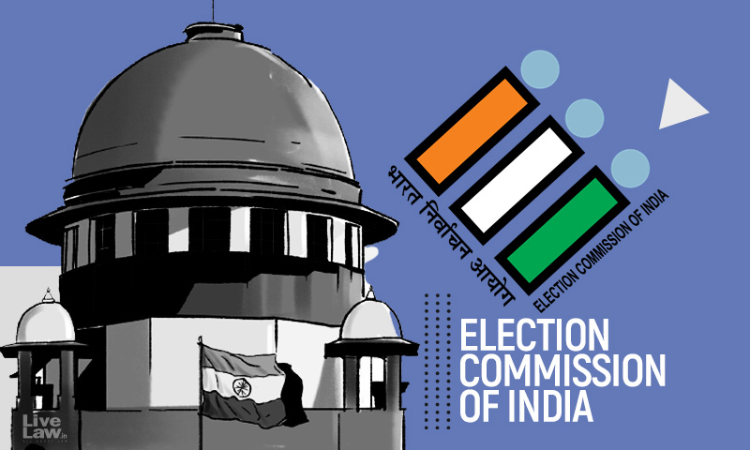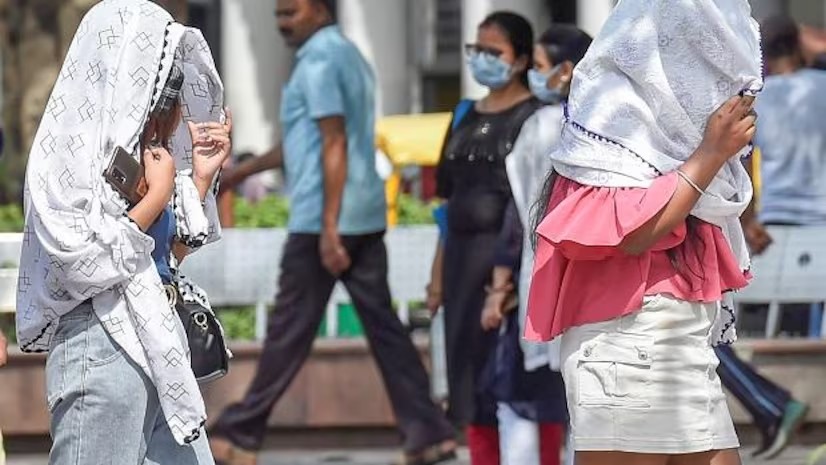Much has changed in the life of Lal Krishna Advani in the past five years. Though he continues to sit in the front row of Lok Sabha, he is no longer the fiery parliamentarian India has known him to be.
August 8, 2012. The Lok Sabha was debating an adjournment motion on the issue of illegal infiltration into Assam and large-scale ethnic violence in the state. Leading the debate for the Opposition was Bharatiya Janata Party’s (BJP) ‘Loh Purush’ (Iron Man), Lal Krishna Advani.
The text of the debate from the day suggests that it was a stormy affair. The Manmohan Singh-led UPA II government was hell-bent on defeating the adjournment motion. And so, there were disruptions from the treasury benches. But, LK Advani spoke. There were more disruptions, but Advani continued saying what he wanted to.
This wasn’t entirely new for the veteran politician whose decades-long political career had weathered many such storms. LK Advani’s speech that day spanned nearly 5,000 words (4,957 to be exact). The speech was punctured with at least 50 interruptions from the members sitting on the treasury benches. Ultimately, the motion was defeated but not without Advani speaking his mind.
Fast forward to January 8, 2019. The Lok Sabha was witnessing another stormy day. The Narendra Modi-led NDA government had introduced the Citizenship Amendment Bill in the House.
If the Bill is passed by Parliament (it is yet to be introduced in Rajya Sabha), it will have far-reaching consequences on the socio-political life in Assam, the debate on illegal immigration in the state, and the state’s ethnic composition.
The day the Bill was introduced, debated and passed in the Lok Sabha, LK Advani was present in the House. But despite the Bill’s importance, he did not utter a single word.
This was the same LK Advani, who eight years ago, despite 50 interruptions, went on with his demand for an adjournment motion on the same issue.
2012 to 2018 — a gap of eight years. Things have changed, the government has changed, and changed also is the man — Lal Krishna Advani.
ADVANI’S DRAINING ORATORY
An analysis of the Lok Sabha records available on its website shows that in the past five years, LK Advani has uttered just 365 words in the House.
Compared to his performance in the 15th Lok Sabha (2009-2014), this is a drop–rather a plunge–of 99 per cent. Between 2009 and 2014, LK Advani took part in 42 debates/proceedings in the Lok Sabha and uttered 35,926 words.
On the other hand, all the 365 words that Advani uttered in the present Lok Sabha were uttered in 2014. He hasn’t spoken in the Lok Sabha since December 19, 2014, show Lok Sabha records for the past five years.
You would be mistaken if you think Advani is a man of few words. His autobiography, My Country My Life, runs to more than 1,000 pages, suggesting he has lots to say.If we analyse LK Advani’s engagement in the Lok Sabha since 2014, as accessed from the records on the Lok Sabha website, we find that Advani an eleven-time MP, the founding member of the ruling Bharatiya Janata Party (BJP), the senior-most BJP leader alive, and someone who is credited with having played a significant role in strengthening the party’s political base in India, spoke in the Lok Sabha on only five occasions.
Of these five occasions, two were during the election of the Speaker and Deputy Speaker in Lok Sabha. The only words he spoke on these occasions were: I support the motion. (Contrast this with June 3, 2009, when in his felicitation speech after the election of Mira Kumar as Lok Sabha Speaker, Advani uttered 440 words–75 words more than what he spoke in past five years)
Two other occasions when Advani spoke in Parliament between 2014 and 2019 were when he presented reports of parliamentary committees he was heading or a member of. These times as well, he had nothing much to say beyond mere formality. Advani read the name of the report he was presenting and said, ‘I submit the report on the floor of the House’.
The fifth time LK Advani spoke in Parliament in the past five years was to comment on the issue of migrants in Kashmir. Here too, he just made references to an old report of a parliamentary committee and said the report should be revisited and there should be a deliberation on how its recommendations could be implemented.
In terms of the total time spent talking during debates or proceedings in the Lok Sabha, Lal Krishna Advani has spent less than three minutes uttering 365 words (considering the time taken to read 365 words, even at a slow speed).
BRILLIANT ATTENDANCE
Lal Krishna Advani’s sudden and complete withdrawal from public discourse is not conditioned by ill health or the inabilities associated with age (Advani is 91).
LK Advani’s attendance record in the Lok Sabha during the Narendra Modi government’s term is exemplary. Advani was present in Parliament on 92 per cent of the days it was in session.
Between June 4, 2014 and January 8, 2019, the Lok Sabha held 16 sessions, meeting for 321 days. Of these, LK Advani is marked ‘signed’ on 296 days (92.21 per cent).
This is far greater than ministers, leading speakers of today’s BJP or even key opposition leaders.In fact, this attendance is higher that what he had during the UPA II era. Between 2009 and 2014, Advani was present on 91 per cent of the days the Lok Sabha was in session.
WHEN ADVANI RULED
Between 1998 and 2019, Advani has been a member of five Lok Sabhas (12th-16th). He was the No. 2 in the Atal Bihari Vajpayee government (1998-2004) and remained the Leader of Opposition during much of Manmohan Singh’s UPA era (2004-2014).
Today, though he continues to remain seated in the first row of the treasury benches, he is no longer the fiery parliamentarian he once was.
An analysis of Lok Sabha records of the past 21 years (1998-2019) shows that in this period, Advani took part in 300 debates/proceedings. But, of these, only five (i.e. 1.6 per cent) were in the current Lok Sabha.
Between March 21, 1998 and April 15, 1999 (12th Lok Sabha) when the BJP was in power, in a period of just a year, Advani took part in 57 debates/proceedings.
During the next Lok Sabha, Advani was the No.2 in the Vajpayee government and during this time he took part in 179 debates or proceedings.
During the UPA I regime (2004-2009), Advani participated in 74 debates/proceedings as the Leader of Opposition. Over the next five years (UPA II’s 2009-2014), he took part in 42 debates/proceedings.
Now, compare these figures to that from the current Lok Sabha.
Between June 2014 and January 2019, across 16 sessions of Parliament, LK Advani spoke on just five occasions for about three minutes in total.
Records of the Lok Sabha show that though Advani did not ask any question between 1999 and 2019, he participated in discussions of 45 government bills and had 60 special mentions. But, none of these were post-2014.
Not just in Parliament, but even within the BJP, the party which he formed with Vajpayee and devoted his life to, his presence has ebbed away.
In the age of social media, he rarely finds a mention in the scores of tweets that the BJP posts day in and day out.
An analysis of BJP’s Twitter handle (@BJP4India) since 2011 shows that tweets on Advani spiked in 2013–a year when the BJP campaigned hard to prepare for the 2014 Lok Sabha elections. But once the elections were over and a BJP-led government was formed at the Centre, Advani appears to have disappeared from the BJP’s Twitter handle.
On Facebook, the BJP put up 43 posts mentioning Advani in 2013. In 2011, the number of such posts was 25, and in 2012 it was 21.
After 2013, we see a drastic fall in posts mentioning Advani on the BJP’s Facebook page. In 2014, there were three posts, in 2015 four, in 2016 one post, in 2017 zero, 2018 two and 2019 zero.
Before the 2014 Lok Sabha elections, Advani was also an avid blogger who would publish regular commentaries and observations on a cross-section of issues. But a visit to his blog today shows that the last write-up was published on April 24, 2014. No word since then.
In the run-up to the 2014 Lok Sabha elections, Advani wrote 39 blogs between January 2013 and April 2014. Barring few months which had zero blog posts, on an average he would write three blogs every month.
In terms of press releases concerning LK Advani on the website of the Bharatiya Janata Party, we find that in the past few years, most of the press releases are about Advani expressing condolences on the death of politicians.
SUMMER OF 2014
The year 2014 was an important one for the Bharatiya Janata Party. Important, because this was the first time that the party was able to form a majority government at the Centre on its own.
Against the half-way mark of 272, the BJP won 282 seats. Clubbed with allies, the BJP-led National Democratic Alliance’s tally zoomed to 336.
But for Lal Krishna Advani, 2014 signalled his political sanyaas (exile). Already in the sunset years of his life, Advani was told by the BJP — a party he founded along with Vajpayee and dedicated his life to — that his days and rule is now a matter of the past.
Soon after Narendra Modi took charge of as the prime minister, LK Advani, Vajpayee and another BJP stalwart and founding member, Murli Manohar Joshi, were made part of the Margdarshak Mandal, a club whose supposed aim was to enlighten the BJP’s path. The significance of the club, which also includes PM Modi and Rajnath Singh, can be understood from the fact that it is yet to have its first meeting comprising all members.
Advani’s entry into the Margdarshak Mandal has proved to be the closest it can be to being ousted from the very party he founded, nursed and kindled.
In 2014, Advani and Joshi were also dropped from the BJP’s top decision making bodies–BJP parliamentary board and its central election committee.
Contrast this with the slogan: ‘Bhajpa ke teen dharohar, Atal, Advani aur Murli Manohar’. This was one of the most popular slogans of the BJP in the 1990s when it was gaining massive grounds in electoral politics.
Thus, for the senior-most leader of the BJP, 2014 was a year where on one hand, he was witness to the party registering a landslide victory in the Lok Sabha elections and forming its own government (a cause he had devoted his life to).
On the other, this larger-than-life victory also meant that his political life and clout over the party would ebb away into oblivion after the tumultuous summer of 2014.
As India gears up for the 2019 Lok Sabha elections, it remains to be seen if the BJP veteran will once again (probably for the last time) dive into the turbulent electoral waters and swim across, or should we understand that the tumultous summer of 2014 was the last we saw him in election mode.






